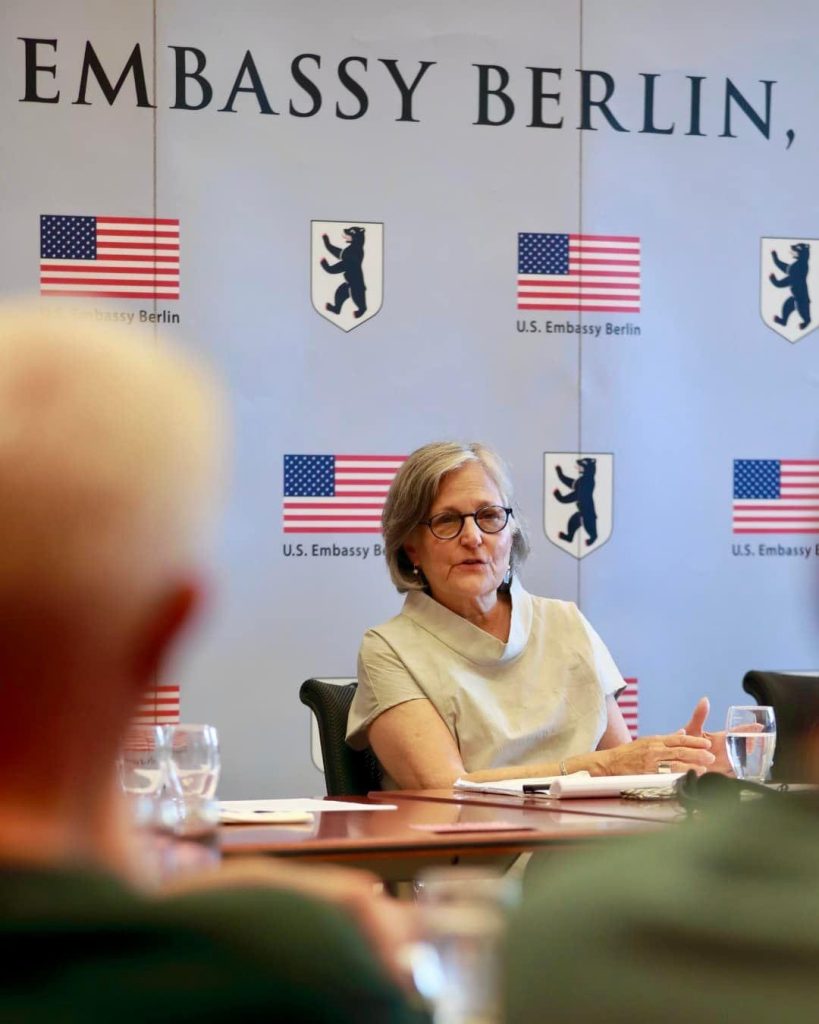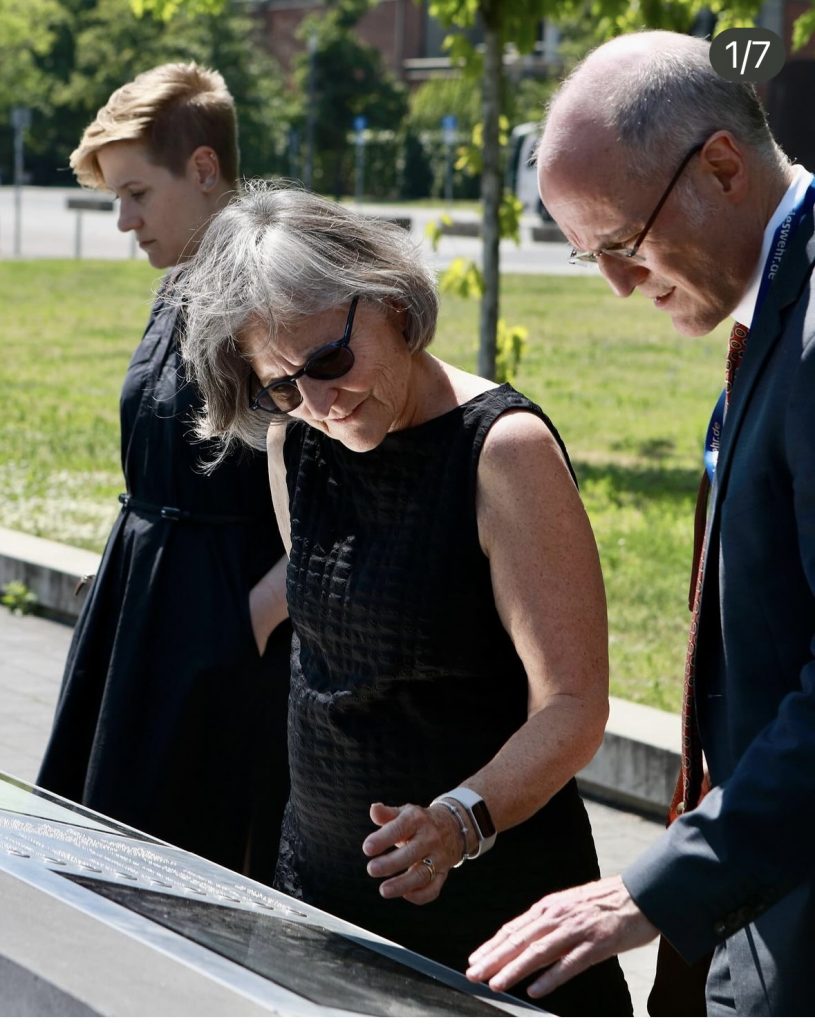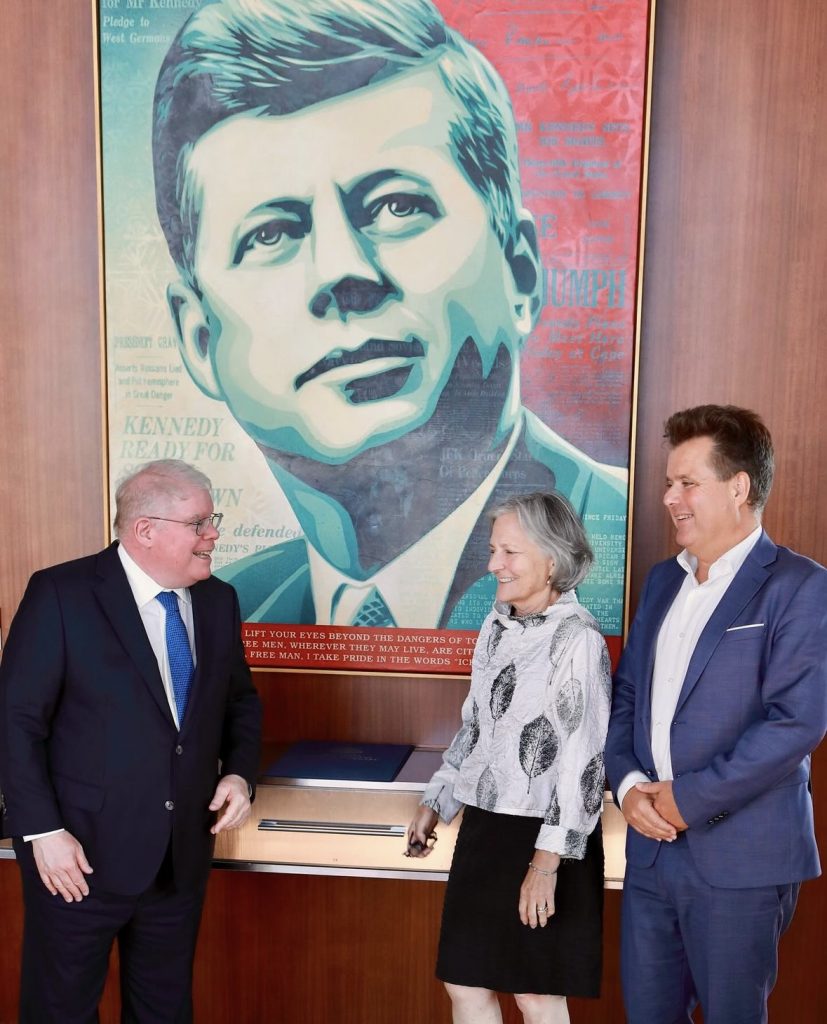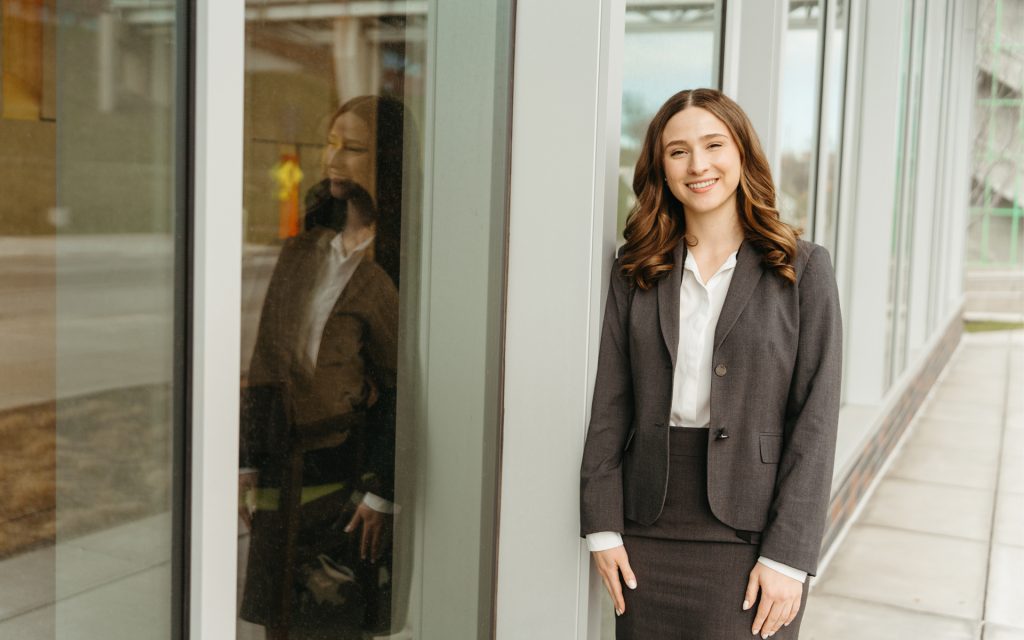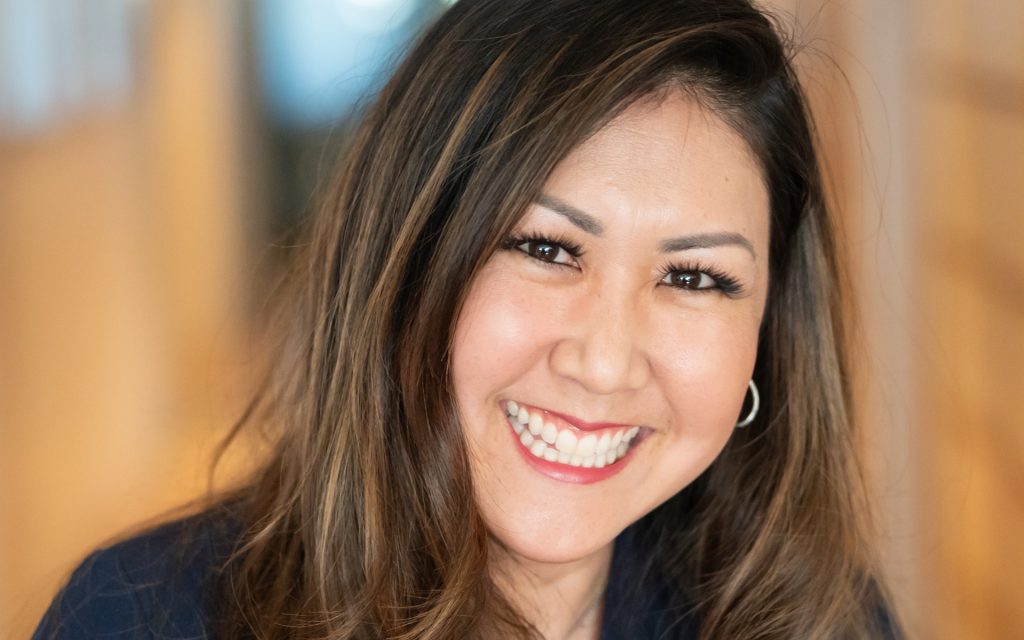
According to Brooke Hasegawa-Nakaoka L’22, inclusivity resonates with her family. In her native Hawai’i, it is known as “’the aloha spirit,’ a celebration of kindness and compassion appreciating all things we are given and all those that surround us and, where we include everyone,” she explains. That sense of inclusivity extended to her experience in the JDinteractive (JDi) program at Syracuse University College of Law. “’Aloha’ is diversity, equity and inclusion, and finding a school, employer, social circle and community that appreciated and included ‘aloha’ in its mission was very important. Syracuse Law provided that to my ohana (family),” Hasegawa-Nakaoka says.
“’The aloha spirit,’ [is] a celebration of kindness and compassion appreciating all things we are given and all those that surround us and, where we include everyone.’Aloha’ is diversity, equity and inclusion, and finding a school, employer, social circle and community that appreciated and included ‘aloha’ in its mission was very important. Syracuse Law provided that to my ohana (family).”
—Brooke Hasegawa-Nakaoka L’22
Born and raised on the island of Oahu Hasegawa-Nakaoka earned a bachelor’s degree in business from the Marshall School of Business at the University of Southern California (USC) and started her career as a financial advisor for Morgan Stanley in Los Angeles. Later, she worked as a senior account executive in sales and marketing at Paradise Media Group, LLC, and a lecturer at the Shidler College of Business at the University of Hawai’i at Manoa. During this time, she also pursued an MBA and graduated cum laude from the University of Hawai’i in 2008.
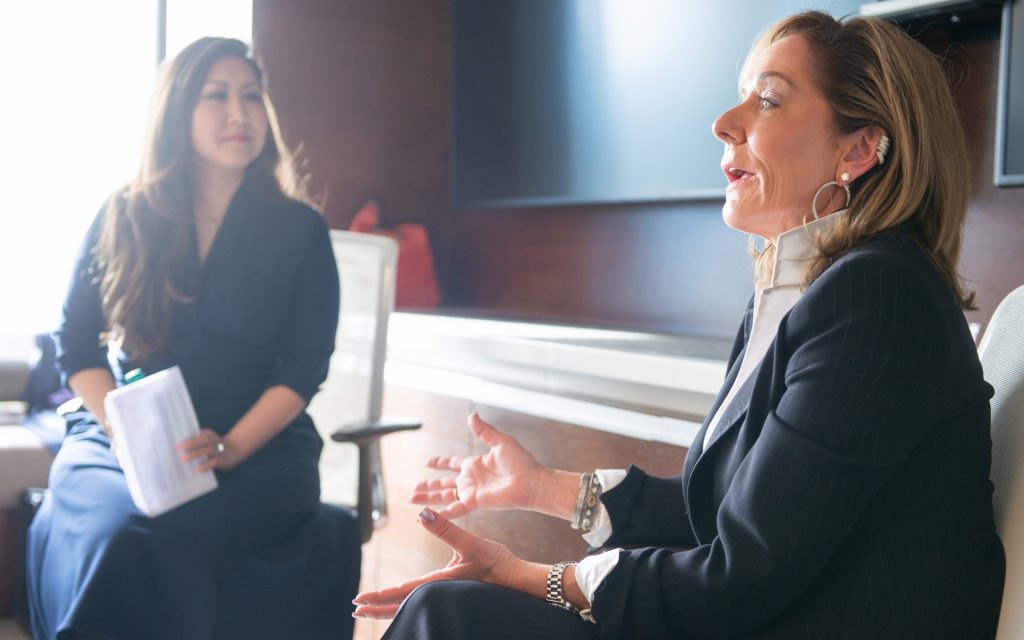
In 2011, she had a family, and “life soon became filled with visits to the zoo, juice pouches, and cheese sticks,” according to Hasegawa-Nakaoka. For the next four years, she raised her family and continued as a lecturer in global management and organizational behavior. But, when her son started kindergarten, she decided it was time to pursue law, earning a master’s degree in the study of law (M.S.L.) from USC in 2019. With a preliminary legal foundation, she applied to the Syracuse University School of Law’s JDinteractive (JDI) program.
“Like so many JDi students that I meet, law school was something I always wanted to do,” she says. “I just had a few other things I needed to do first.”
“Like so many JDi students that I meet, law school was something I always wanted to do. I just had a few other things I needed to do first.”
—Brooke Hasegawa-Nakaoka L’22
Her experience was positive, as she participated in online classes all the way from Hawai’i. She remembers her initial visit to the Syracuse campus during her cohort’s first residency, led by Associate Dean for Online Education Shannon Gardner. “It was a warm welcome that empowered me to remain committed to the JDi program. Dean Gardner was my first introduction to Syracuse Law and the first person I thought to notify when I passed the bar exam three years later,” says Hasegawa-Nakaoka.
“Dean Gardner was my first introduction to Syracuse Law and the first person I thought to notify when I passed the bar exam three years later.”
—Brooke Hasegawa-Nakaoka L’22
On the day of her first residency at Syracuse Law, Hasegawa-Nakaoka chose a seat that serendipitously put her in front of her soon-to-be “law school bestie” Eliseo Arebalos L’22, who became her confidant over the next three years.
“Because of Syracuse Law, my son has Uncle Eli in his life, and my family and I are forever blessed with his friendship,” she says.
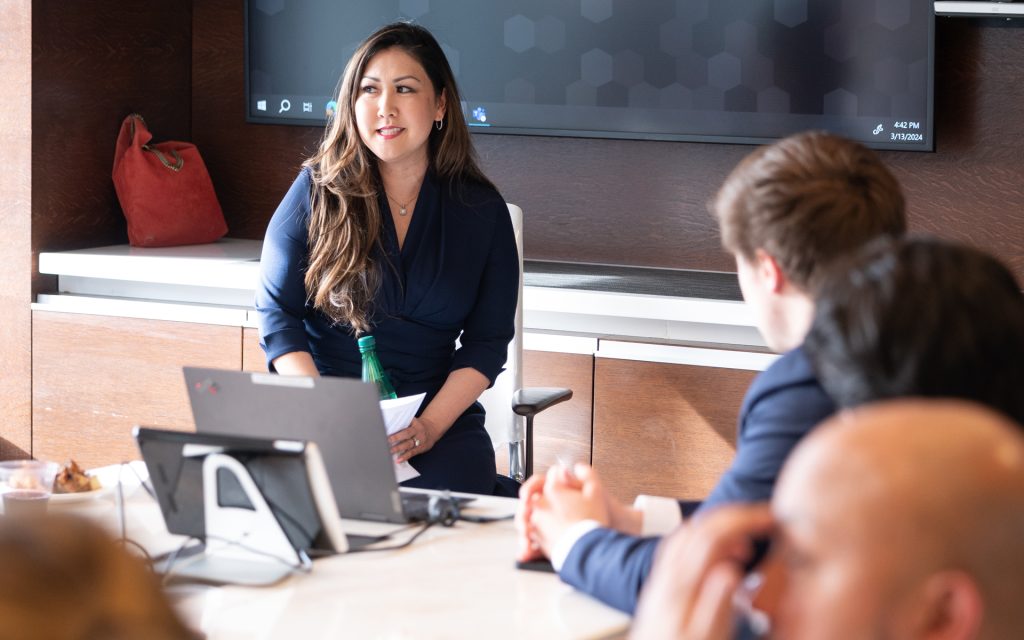
While pursuing her law degree, Hasegawa-Nakaoka had an externship that honored her Hawaiian roots and community when she worked 821 hours as a law clerk with the Legal Aid of Maui. (Her great grandfather, the Hon. George K. Hasegawa, was a magistrate of the District Court of Lahaina and Lanai. He retired from the bench after 11 years of service to the community. In addition, both her paternal grandparents and maternal grandfather were proud graduates of Lahainaluna High School and members of the Lahaina community that made headlines around the world when it was decimated by wildfires in August 2023.) Hasegawa-Nakaoka felt it was important to honor her roots and community by doing legal aid work for those who needed help. As a result of her commitment, she received the Arthur T. Ueoka Memorial Scholarship presented by the Maui County Bar Association in 2021 and was later awarded the 2022 Outstanding Pro Bono Service Award by Syracuse Law.
With her law degree in hand—Hasegawa-Nakaoka was the first female in the JDi program to pass the bar—she is currently working as an associate with the International Reproductive Law Group of Los Angeles, where her law school friend Arebalos is a managing partner. She also works as vice president and house counsel for Progressive Communications, LLC, based in Honolulu. Her family is located in both Los Angeles and Hawaii, as her son wanted to pursue opportunities on the mainland, while her husband’s business is still on the islands. “Our family has adopted the ‘Live with Aloha’ mindset, which has aided our transition to Los Angeles,” she explains.
“Syracuse Law gave me so much more than a law degree. Even though I was taking classes online from across the country, the ‘aloha spirit” at Syracuse Law made me feel right at home, and for that I am grateful.”
—Brooke Hasegawa-Nakaoka L’22
Her journey has been a long one, in time, effort and distance, but she is pleased that she can now practice law. Says Hasegawa-Nakaoka, “Syracuse Law gave me so much more than a law degree. Even though I was taking classes online from across the country, the ‘aloha spirit” at Syracuse Law made me feel right at home, and for that I am grateful.”


